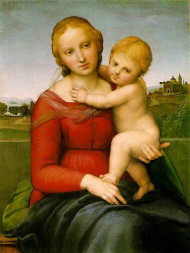Origin of certain Catholic practices

I personally believe that we should know why we do the things we do. That is why I love history. It tells me so much about what I presently am. I was born and raised Catholic and for years I believed what I was told and practiced religion as I was taught. I had the notion that all we did as part of practising religion came directly from God and was ordered by Jesus after he "founded" the Church. As time passed and to my surprise, I noted that things were not as I was told. Many practices that were supposed to have started with the establishment of the Church, were not so.
I am providing a website that lists many of the practices I am referring to, but the ones that impresed me the most were the following:
- Mary as "Mother of God" was initially proclaimed in the Council of Ephesus, 431 CE.
- The title of "Pope" was first used to describe the Bishop of Rome in the year 610
- The worship of the cross, images and relics was authorized in 788
- The celibacy of the priesthood was declared in 1079
If Catholics want to really know their own religion I encourage them to go and look for their own history. And this is true for all religions.















5 Comments:
In Spanish, we still call the pope "sumo pontifice", which comes directly from the Latin "pontifex maximus". That title was the one used by the maximum religious authority. Julius Caesar was elected pontifex maximus in 63 BCE. This could be argued was one of the first steps on Caesar's accumulation of power that reached its maximum when he was appointed Dictator in 44 BCE. At that moment he was "de facto" an Emperor because he had religious, political and judicial authority, far more authorithy than the Senate. Caesar was not friend of the Republic and that was probably the reason why he was killed. "Pontifex" comes from "pontem faciens" which means "bridge maker", probably referring as the one in charge of communicating with the gods.
In 382 CE, The emperor Gratian leaved the title of "pontifex maximus" to the bishop of Rome named Siricius. Since then, the "pontifex maximus" was the bishop of Rome and not the Roman emperor. In 610 CE the Eastern Roman emperor, Phocas, addressed the bishop of Rome (or pontifex maximus) Boniface IV as pope for the first time.
It is good to have people acknowlegding the nature of man-made institutions
Christianity was very powerful because it promised afterlife and coming back from the dead. The idea of paradise was also very appealing.
Hi Daniel, thanks for posting a comment.
As far as I know, reincarnation was not a topic for discussion in the First Ecumenical Council of Nicea in 325 CE. However, there was a father of the church called Origen who lived in the third century, who said "The soul has neither beggining nor end". In the Fifth Ecumenical Council, held in Constantinople in 553 CE, it was issued something called "The Anathemas Against Origen". The first sentence reads: "If anyone asserts the fabulous pre-existence of souls, and shall assert the monstrous restoration which follows from it: let him be anathema."
Suena usted como un recalcitrante, ultra ateo comunista, perfil siniestro, mas aun tratandose de un profesional medico refugiado en el primer mundo, proveniente de un pais sudamericano sumido en la ignorancia y la miseria.
Post a Comment
<< Home